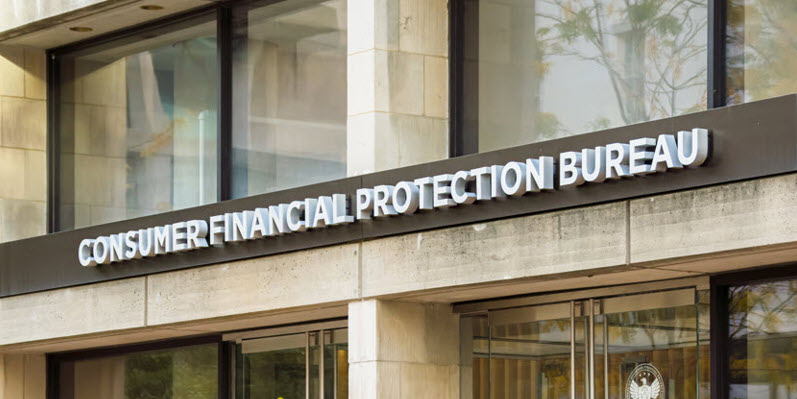The Consumer Financial Protection Bureau (CFPB) is shifting its focus when it comes to oversight and enforcement in the growing Buy Now, Pay Later (BNPL) market.
In a recent announcement, the bureau stated that it will no longer prioritize enforcement actions based on its previous interpretation that classified BNPL lenders under credit card regulations. This change signals a potential rollback of a rule issued last year that required BNPL providers to offer consumers the same legal protections as traditional credit cards—such as the ability to dispute charges and receive refunds for returned items.
While the rule remains in place for now, the CFPB is currently reviewing whether it should be rescinded. This decision comes amid broader changes in the bureau’s enforcement and supervisory strategy, which now emphasizes “pressing threats to consumers,” particularly those affecting servicemembers and veterans.
Changing Consumer Behavior in the BNPL Market
A recent CFPB report highlights the rapid expansion of BNPL usage. Over one-fifth of U.S. consumers have used BNPL services, and adoption continues to grow. Among consumers with a credit record, 2% financed at least one purchase through BNPL in 2022, up from 17.6% in 2021. The number of heavy users—those originating at least one BNPL loan per month—also rose to 20%, with the average number of loans per user increasing from 8.5 to 9.5.
Additionally, BNPL borrowers are increasingly taking out multiple loans simultaneously. In 2022, 63% of borrowers had more than one active BNPL loan at some point, and 33% borrowed from multiple providers.
These consumer trends have implications for the collections industry, as more BNPL accounts are reaching debt collectors. According to a TransUnion survey, 21% of collection agencies reported handling BNPL-related accounts over the past year.
Impact on Credit Reporting and Future Scoring
As the BNPL landscape evolves, credit reporting practices are following suit. Affirm, a leading BNPL provider, began reporting all loan activity to Experian starting April 1, 2025. Although this data will not immediately influence traditional credit scores, it may be factored into future scoring models. The aim is to support both lenders in making better-informed decisions and consumers in building credit histories.
Legal Challenge and Industry Uncertainty
In a significant legal development, the Financial Technology Association has filed a lawsuit challenging the CFPB’s classification of BNPL companies as credit card providers. The CFPB has since indicated its intent to withdraw the interpretive rule, although no formal action has been taken yet.
Industry experts suggest that if the rule is ultimately rescinded, it could bring greater regulatory certainty for BNPL providers. These companies would avoid the operational burden of adapting to the credit card framework, which includes issuing periodic statements and overhauling digital infrastructure.
A New Enforcement Approach
In addition to its BNPL policy shift, the CFPB has outlined broader changes to its enforcement and supervision strategies. The bureau is moving away from actions that overlap with state-level enforcement, opting instead to concentrate on issues such as consumer fraud and data protection.
A memo outlining the bureau’s 2025 priorities states that all previous enforcement and supervision guidance has been rescinded. Future efforts will emphasize clear consumer harm, especially in cases of fraud involving measurable financial damage.
For industries involved in consumer credit and collections, key areas of focus include:
- Violations of the Fair Credit Reporting Act and data furnishing rules
- Debt collection practices under the Fair Debt Collection Practices Act
- Weaknesses in data security controls that lead to actual consumer losses
The CFPB’s updated approach reflects a more targeted and data-driven strategy, signaling to financial services and collections stakeholders that regulatory expectations may continue to evolve in step with market trends.
Sign Up for the Twice Monthly Newsletter
Just enter your email address at the top orange bar at:
Collection Compliance Experts – “The Power of Expertise: Oversight Perfected”
It’s that easy! Twice a month – we provide blog updates and Resources for the Collection and Industry Professional.
Your email is just for this newsletter. We never sell your information. No fee. Opt-out at any time.

Author: Jennifer Evancic
Jennifer.Evancic@ResourceManagement.com
Jennifer Evancic is a third-party auditor valued by creditors and large organizations for her knowledge in call monitoring within the collections industry. With meticulous attention to detail and a firm grasp of regulatory requirements, she ensures compliance with clients’ criteria and state and federal regulations.
Jennifer audits collections calls, ensuring they meet client-specific criteria and comply with regulations, providing valuable insights and maintaining industry standards.
Beyond her auditing responsibilities, Jennifer takes the lead in organizing and facilitating monthly call calibrations. These sessions serve as a collaborative forum where clients and their vendors come together to discuss call monitoring results and address any findings or areas for improvement. Jennifer’s guidance fosters open communication and ensures alignment between clients and vendors, driving continuous improvement in collections practices.
Jennifer stays up-to-date with compliance and industry best practices by participating regularly in peer meetings, regulatory updates and industry webinars. This keeps her informed about emerging issues and ensures she remains a knowledgeable leader in collections compliance.



